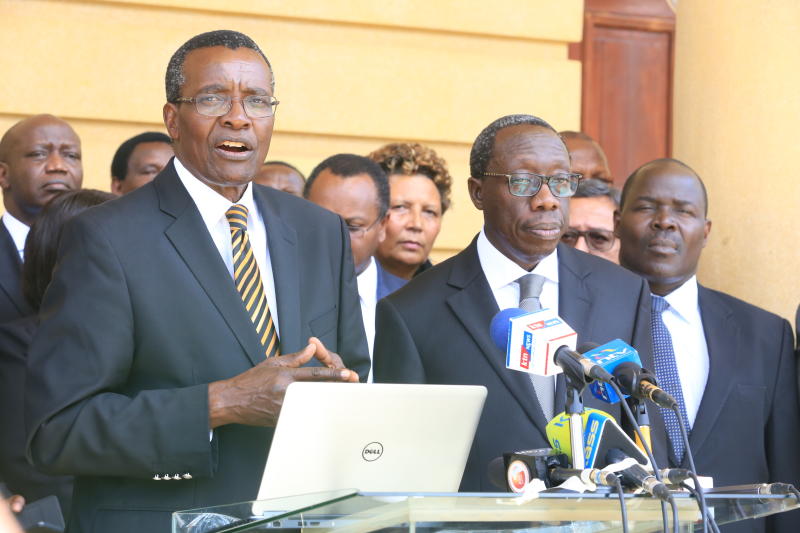×
The Standard e-Paper
Kenya’s Boldest Voice

The Judiciary has dropped its defensive stand in the fight against corruption by adopting an elaborate plan to tighten the noose on the vice.
Yesterday’s meeting chaired by Chief Justice David Maraga and comprising leaders of the bench, agreed that the ball was squarely in their court and resolved to rejig their approach to corruption cases.